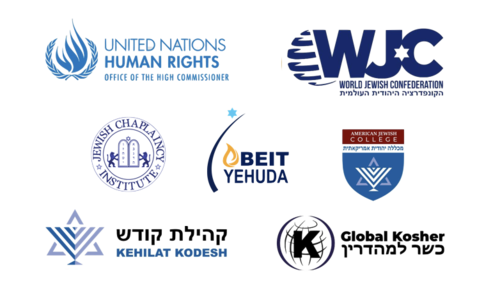The chosen people
| Author | |
| Date Added | |
| Automatically create summary | |
| Summary |

Pray for Refuah Sheimah: Yossefa bat Sharon and Rafael ben Gladis.
Continue Praying: Mariana bat Zulay
Mazal Tov to Rabbi Ovadiah's father: Reb Nahum HaLevi ben Bracha for his 80th birthday.
Matot and Massei
(Numbers 30:2-32:42)
Matot includes the laws of making and annulling vows, the surprise attack on Midian (the '67 War wasn't the Jewish people's first surprise attack!) in retribution for the devastation the Midianites wreaked upon the Jewish people, the purification after the war of people and vessels, dedicating a portion of the spoils to the communal good (perhaps the first Federation campaign), the request of the tribes of Reuben and Gad for their portion of land to be east of the Jordan river (yes, Trans-Jordan/Jordan is also part of the Biblical land of Israel). Moshe objects to the request because he thinks the tribes will not take part in the conquering of the land of Israel; the tribes clarify that they will be the advance troops in the attack and thus receive permission.
Massei includes the complete list of journeys in the desert (the name of each stop hints at a deeper meaning, a lesson learned there). G-d commands to drive out the land's inhabitants, to destroy their idols and to divide the land by a lottery system. G-d establishes the borders of the Land of Israel. New leadership is appointed, cities of the Levites and Cities of Refuge (where an accidental murderer may seek asylum) are designated. Lastly, the laws are set forth regarding accidental and willful murder as well as inheritance laws only for that generation regarding property of a couple where each came from a different tribe.
* * *
"And Novach went and captured Kenas and its surrounding villages and he called it Novach after his name" (Numbers 32:42).
Why did the Almighty include this verse in the Torah?
Throughout the world, powerful leaders have wanted to leave monuments to themselves through statues and buildings named after them. Kings and conquerors have even named large cities after themselves. However, names can very easily be changed and then nothing is left, as happened to Novach. (Neither Novach nor the city he named after himself are remembered in history.) The good deeds of a person and his spiritual attainments are the only true everlasting monuments.
When you view the good that you do as your eternal monument, you will feel greater motivation to accomplish as much as you can. A life of spiritual attainments is everlasting. Feel joy in every positive act you do, for it gives greater splendor to your monument!
A good name is to be chosen rather than great riches, and favor is better than silver or gold. The rich and the poor meet together; the Lord is the maker of them all. Proverbs 22:1-2
You were given a name when you were born. Ever since, you have been giving yourself a name! When people think of your name, they think of your reputation.
What sort of reputation are you giving yourself? What do others think when they hear your name?
King Solomon wrote this proverb. From experience, observation and extreme wisdom, he understood the value of a good name. He knew that a person with a good reputation enjoys privileges and advantages that a person without one does not.
The memory of the righteous is a blessing, but the name of the wicked will rot. Proverbs 10:7
Love your neighbor and yourself. Be friendly. In the end, let us remember not the words of our enemies but the silence of our friends. Be kind! Kindness is loving people more than they deserve! You were chosen to be an example of a good human being, to be light to the world.
Rabbi Ovadiah Tank
Online Learning
Rabbi Tank is a professor at the American Jewish College of New York where he teaches classes on Talmud, Chassidism, Jewish History, Contemporary Jewish Law and Jewish Music. Rabbi Tank is dedicated to finding modern usefulness and meaning in ancient wisdom texts, providing spiritual, cultural, social and educational programming for communities around the world.
Partners

Join Our Campaign
The wise man seizes the opportunity to do mitzvot" (King Solomon). The lazy person says -- someday I'll do it.
Sat, September 13 2025
20 Elul 5785
Shalom ! שָׁלוֹם
Locations
- Manhattan, New York
- Deal, New Jersey
- Miami (Aventura), Florida
Today's Zimmanin
| Alot Hashachar | 5:11am |
| Earliest Tallit | 5:44am |
| Netz (Sunrise) | 6:34am |
| Latest Shema | 9:42am |
| Zman Tefillah | 10:46am |
| Chatzot (Midday) | 12:52pm |
| Mincha Gedola | 1:23pm |
| Mincha Ketana | 4:32pm |
| Plag HaMincha | 5:50pm |
| Shkiah (Sunset) | 7:09pm |
| Havdalah | 7:59pm |
| Tzeit Hakochavim | 7:50pm |
| More >> | |
Social
Subscribe
Sign up for free to receive weekly our newsletter. If you want to tell friends to receive our posts, type their emails to subscribers.

Privacy Settings | Privacy Policy | Member Terms
©2025 All rights reserved. Find out more about ShulCloud


